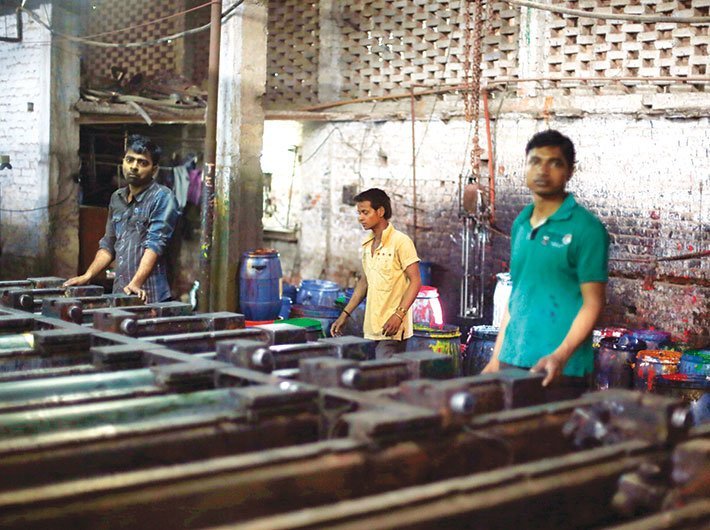Budget 2017-18 agenda of Transforming, Energising and Clean India will help India be skill capital of the world and open up employment opportunities to millions.
The skill ecosystem today is struggling to make skill aspirational as vocational education carries a negative perception vis-a-vis formal education, said a blog hosted on the Niti Aayog website.
The blog “Revitalising the Skill and Employment Ecosystem: Budget 2017-18” by Niti Aayog’s Sunita Sanghi, adviser, A Srija, director and Sakshi Khurana, young professional, said that Budget 2017-18 agenda of Transforming, Energising and Clean (TEC) India will help India tread on a path to become skill capital of the world and opens up employment opportunities to the millions.
The Union Budget 2017-18 agenda to TEC India speaks of the government’s commitment to drive innovation and growth to set new parameters for development so as to facilitate improvement in quality of governance and life of people; energising all, especially the vulnerable sections and bringing about accountability and transparency. Special focus has been laid on farmers, rural population, youth, poor and the underprivileged.
The blog said various cross sectoral measures announced in the budget 2017-18 have ramifications for enhancing employability and job creation for various strata of population. Among the various measures, ‘Energising Youth through Education, Skills and Jobs’ is the key to address the challenges of aspirations of young India.
The skill ecosystem today is struggling to make skill aspirational as vocational education carries a negative perception vis-a-vis formal education. To make skill aspirational, the Ministry of Skill Development and Entrepreneurship initiated Pradhan Mantri Kaushal Kendras in select districts in 2016. The budget proposal to extend this programme to more than 600 districts across the country would act as a catalyst in transforming India as the skill capital of the world through focus on competency based training, quality and sustainability.
The blog went on to say that the India International Skills Centres will serve as a medium for youth seeking global mobility including those from the demographically advantageous states of Bihar, UP, Jharkhand, Rajasthan etc. The availability of skill infrastructure plays a critical role in making available market relevant quality skill programme, enhancing institutional mechanisms for skill development and providing an increased access to quality training to the prospective workforce.
The blog said that the Sub-Group of Chief Ministers on Skill Development (2015), while recommending strengthening the skill ecosystem had also emphasised on skilling the vulnerable so that they too can participate in the growth process. The budget also emphasises on skilling rural youth and women who constitute a significant proportion of the total population.
Masonry training to 5 lakh persons in rural areas by 2022, with an immediate target of training at least 20,000 persons by 2017-18 will enable the rural youth to participate in rural infrastructure projects and empower them with a sense of ownership.
To foster a conducive environment for doing business and enable higher productivity, the central labour laws will be simplified, rationalised and amalgamated into four codes (i) wages; (ii) industrial relations; (iii) social security and welfare; (iv) safety and working conditions. This is a significant step in encouraging many small firms to come into the fold of the formal sector and to ensure enforcement of simplified labour laws. The enactment of the
Model Shops and Establishment Bill 2016 that has been circulated to all states is bound to create more jobs in the retail sector. The amendment to Section 6 of the Payment of Wages Act, 1936, which provides for employers to pay the workers’ wages through cheques or deposit into their accounts would help to keep track of the wages and social security benefits paid to workers, said the blog.
Special focus has been laid on the labour intensive sectors for generating employment opportunities. The scheme for creating employment in the leather and footwear industries along the lines of the Textile Sector will facilitate creation of job opportunities for youth and the unemployed. The launch of the Incredible India 2.0 Campaign across the world will promote tourism and employment. In the MSME sector, the income tax rate of small enterprises with an annual turnover upto Rs 50 crore has been reduced to 25 percent. This will help in promoting small businesses and thereby generate more employment in these enterprises.
The Mahatma Gandhi National Rural Employment Guarantee Act (MGNREGA) has been reoriented to create productive assets such as farm ponds, compost pits etc., which would support farm productivity and help in doubling of farmers’ income. This supports the increased allocation of Rs 48,000 crore to MGNREGA.
Priority given to enterprises of Dalits, Tribals, Backward Classes and Women highlights the inclusive aspect of the budget. In a commendable development, under the Standup India scheme launched in 2016-17 to support entrepreneurship among the Dalits, tribals and women, over 16000 new enterprises have come up in areas such as food processing, garments, diagnostic centres etc.
The effective utilisation of these allocations announced in the Budget 2017-18 and implementation of the various new and existing programmes would go a long way in generating greater employment opportunities for the youth and unemployed and re-skilling those already in the workforce. The budget allocations in the social sector promise social protection to those who form a part of the informal sector in the country and would pave the way for decent employment.
Read: Niti Aayog blog - Revitalising the Skill and Employment Ecosystem: Budget 2017-18


